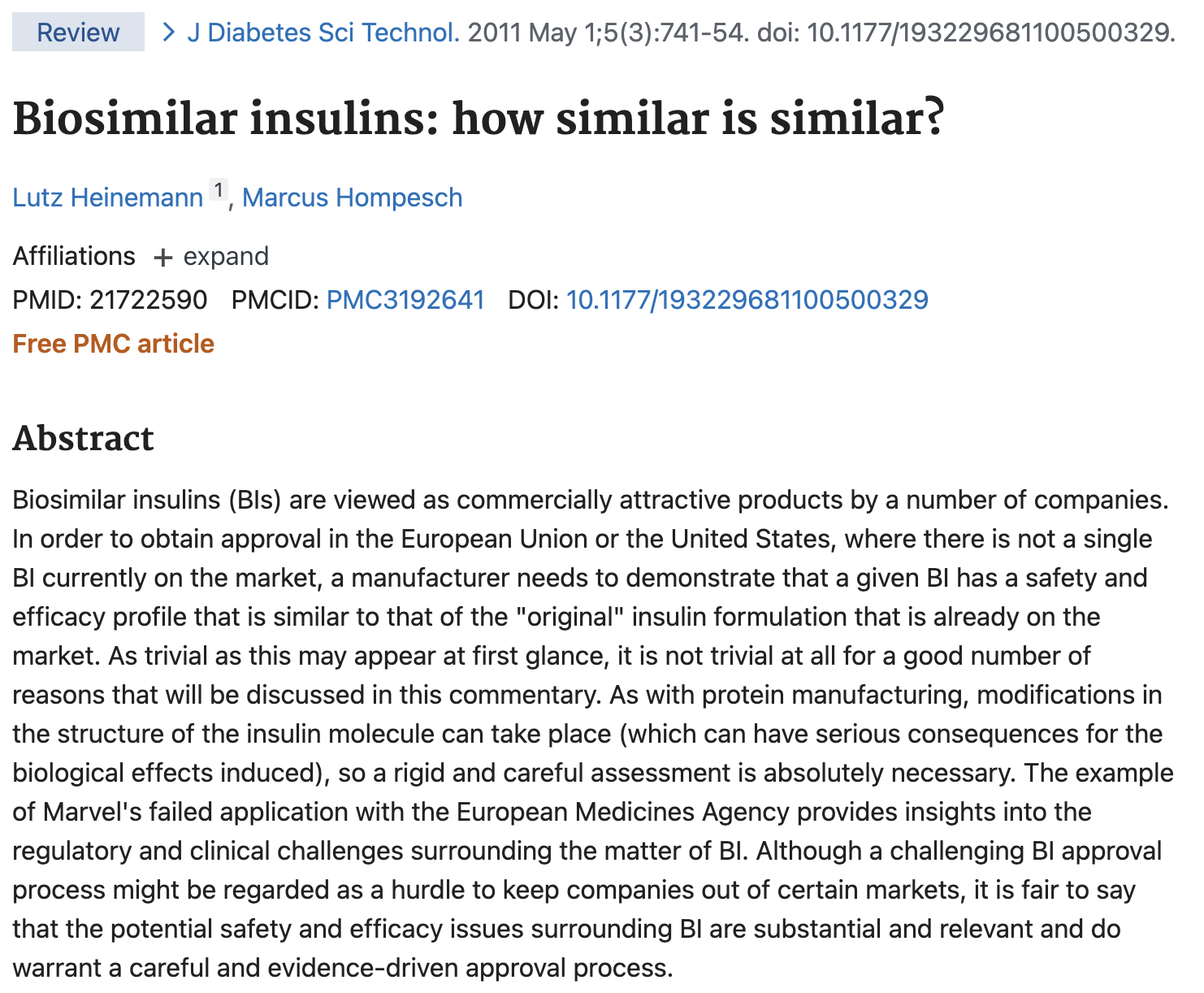About This Article
Biosimilar insulins (BIs) are viewed as commercially attractive products by a number of companies. In order to obtain approval in the European Union or the United States, where there is not a single BI currently on the market, a manufacturer needs to demonstrate that a given BI has a safety and efficacy profile that is similar to that of the “original” insulin formulation that is already on the market. As trivial as this may appear at first glance, it is not trivial at all for a good number of reasons that will be discussed in this commentary. As with protein manufacturing, modifications in the structure of the insulin molecule can take place (which can have serious consequences for the biological effects induced), so a rigid and careful assessment is absolutely necessary. The example of Marvel’s failed application with the European Medicines Agency provides insights into the regulatory and clinical challenges surrounding the matter of BI. Although a challenging BI approval process might be regarded as a hurdle to keep companies out of certain markets, it is fair to say that the potential safety and efficacy issues surrounding BI are substantial and relevant and do warrant a careful and evidence-driven approval process.



